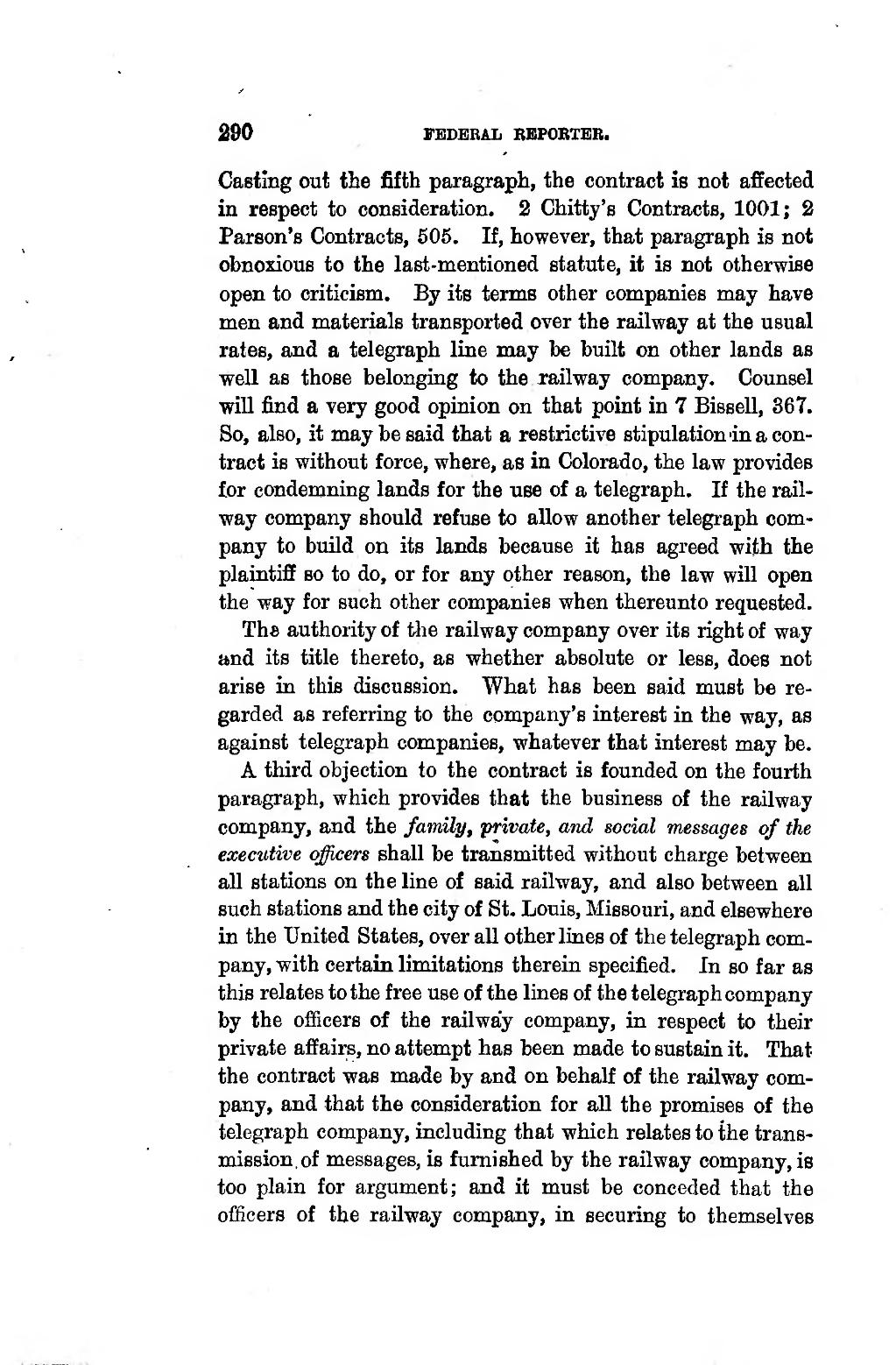290 FEDERAL REPORTER. �Casiing out the fifth paragraph, the contract is not affected in respect to consideration. 2 Chitty's Contracta, 1001; 2 Parson's Contracta, 505. If, however, that paragraph is not obnoxious to the last-mentioned statute, it is not otherwise open to criticism. By its terms other companies may have men and materials transported over the railway at the usual rates, and a telegraph line may be built on other lands as well as those belonging to the rail way company. Counsel will find a very good opinion on that point in 7 Bissell, 367. So, also, it may be said that a restrictive stipulation in a con- tract is without force, where, as in Colorado, the law provides for condemning lands for the use of a telegraph. If the rail- way company should refuse to allow another telegraph com- pany to build on its lands beeause it has agreed with the plaintiff so to do, or for any other reason, the law will open the way for such other companies when thereunto requested. �Tha authority cf the railway company over its right of way and its title thereto, as whether absolute or less, does not arise in this discussion. What has been said must be re- garded as referring to the company'a interest in the way, as against telegraph companies, whatever that interest may be. �A third objection to the contract is founded on the fourth paragraph, which provides that the business of the railway company, and the family, private, and social messages of the executive officers shall be transmitted without charge between ail stations on the line of said railway, and also between ail such stations and the city of St. Louis, Missouri, and elsewhere in the United States, over ail other lines of the telegraph com- pany, with certain limitations therein specified. In so far as this relates to the free use of the lines of the telegraph company by the ofScers of the railway company, in respect to their private affaire, no attempt has been made to sustain it. That the contract was made by and on behalf of the railway com- pany, and that the consideration for ail the promises of tho telegraph company, ineluding that which relates to the trans- mission, of messages, is furnished by the railway company, is toc plain for argument; and it must be conceded that the officers of the railway company, in securing to themselves ����
